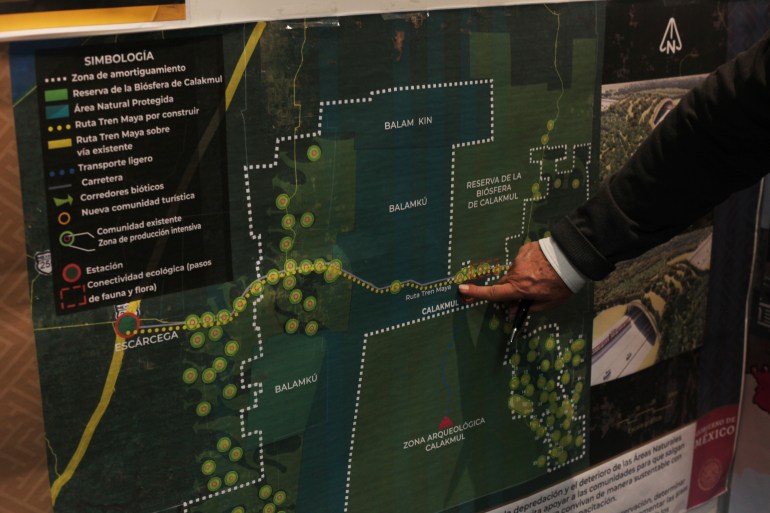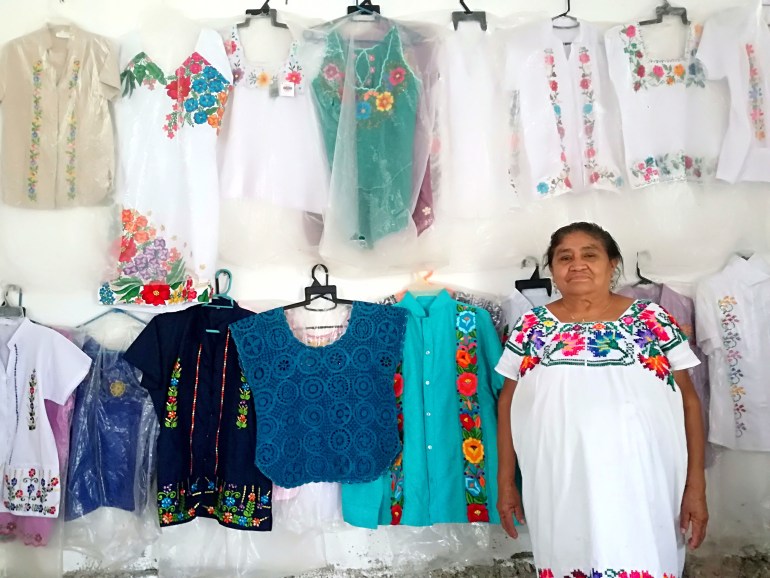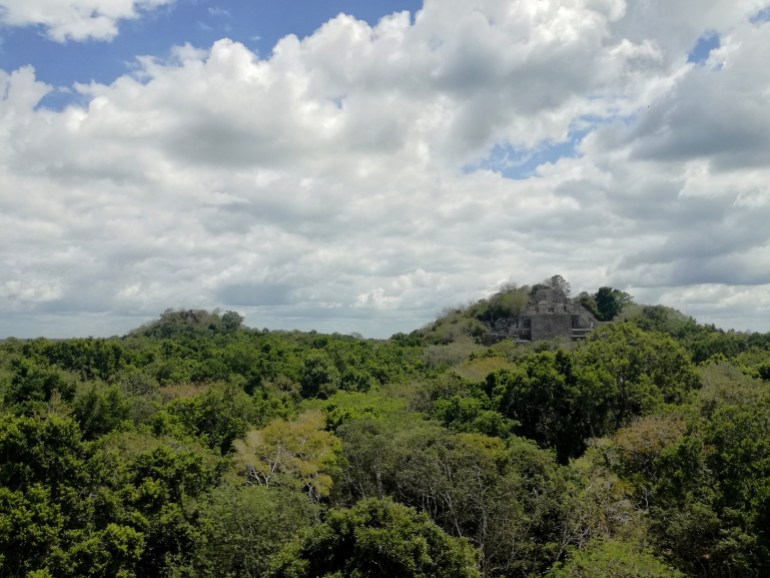Like many of the villages in Calakmul in the south of Mexico’s Yucatan Peninsula, the sleepy, modest town of Xpujil lies alongside the area’s only federal highway. It is this road that is its main source of activity – heavy goods vehicles (HGVs) roar past open buildings; water trucks trundle about, relieving the arid, thirsty town.
Queues of women and children form outside the hospital and, late at night, at the bus station. Some here feel that Xpujil (pronounced Ish-pu-hil) lacks infrastructure.
“There are no banks, and the ATMs always run out of cash. I have to go to Chetumal [the nearest city] to get a good phone service,” says Anita, a 26-year-old mother. Many have placed hopes for a better-connected, better-resourced future on a train.

Located on the edge of the Calakmul Biosphere Reserve, in the heart of the second-largest expanse of tropical forests in the Americas, Xpujil is on the blueprint for a new railway project – the Tren Maya – that will connect different locations in Mexico’s touristic Yucatan Peninsula.
But a recent suspension of the construction on the project has caused a bitter conflict in Xpujil, the majority of whose 4,000 or so inhabitants are non-Indigenous migrants and descendants of wood and gum merchants who settled in the 20th century. Mayan and other Indigenous groups live in surrounding communities with no public transport connections.
“I have been subject to personal attacks and victimization,” said Romel Gonzales, a founding member of the Regional Indigenous and Popular Council of Xpujil (CRIPX) which fought for the suspension. “Our opponents have been to the houses of our colleagues and tried to pressure them into desisting.”
In January, CRIPX successfully filed an amparo, or constitutional protection, against the government’s consultation process on the Tren Maya, which would stretch 1,502km (933 miles) and is estimated to cost almost $16bn. The temporarily suspended second section of the line would cut through Calakmul horizontally, running parallel to the highway.
CRIPX and a number of Yucatan’s environmental and Indigenous groups are concerned that the 160km/hour (99mph) cargo and passenger train will affect the migratory routes of endangered species, including jaguars, tapirs and ocelots, as well as cause social disruption and potentially damage centuries-old Mayan archaeological sites.

But for a community that has long suffered hunger, injustice and inequality, Eleazar Dzib, a Mayan community leader told Al Jazeera. “The train will mean economic development.”
“All projects affect the environment, and unfortunately this has a lot to do with what we want in this municipality. We are against environmental damage; in fact, we live from the conservation of this environment,” said Dzib, who also leads the Pro-Tren Maya Committee, adding that measures are being taken to minimise disruption to the reserve. He maintains that “about 90 percent” of Calakmul’s residents want the train to be built.
In line with results from official government surveys, Xpujil residents interviewed by Al Jazeera generally spoke favourably of the train, citing increased tourism, cheaper freight, rapid transit and tunnels to facilitate fauna migration among expected benefits.

While tourism is not a key driver of its economy, for a handful of visitors Xpujil is the launchpad to some of the 100 or so imposing archaeological sites nestled in the surrounding jungle; vestiges of the powerful Mayan empire that ruled here until around 900 AD. The train could increase the number of tourists to 8,000 per day, according to government estimates.
CLICK HERE FOR FULL ARTICLE ON AL JAZEERA


